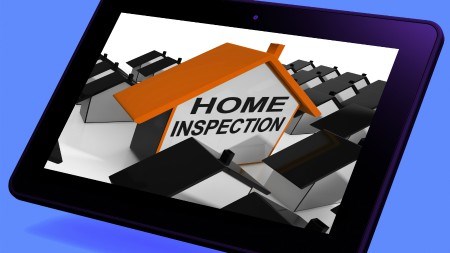It’s vitally important to conduct incoming and outgoing inspections in order to ensure that the rental deposit on a property is handled fairly.
One of the most common issues regarding rental property is the return of the rental deposit once the tenant has moved out. Social media pages are littered with complaints from tenants who insist their landlord is trying to rip them off by refusing to return their deposit, or is charging them for repairs to problems which existed before they moved into the premises.
By the sounds of things there are some pretty dodgy landlords out there but to be fair, in most cases only the tenant’s side of the argument is heard. There are always two sides to a story and there are certainly times when tenants cause untold damage to a home and a landlord has every right to deduct the cost of repairs from the deposit.
The importance of conducting an inspection before the tenant moves in and another once the tenant has moved out cannot be over emphasised. Either the owner - or the estate agent - and tenant should take notes and photographs, clearly showing the overall condition of the property and recording any damage.
Some of the things to note before taking occupation include the state of the carpets (with photographic evidence of any stains or tears), the walls, the perimeter walls or fence, light fittings, kitchen cabinetry, toilets, showers and baths. Every defect regardless of its size should be noted and photographed and a copy of the defects held by the owner, the estate agent and the tenant. The document as well as the photographs should be brought into play when the tenant moves out and the landlord estimates the costs of any additional damage.
What landlords do need to understand is that a tenant is not financially responsible for fair wear and tear on a property. To give an example, a tenant who has lived in a property for an extended period – say five years - can generally not be expected to pay to have the home repainted. Paint doesn't last forever and most walls need to be either repainted or at least touched up on a fairly regular basis. Carpets are also often a bone of contention. Carpets have a limited lifespan and will need to be replaced at some time. Expecting your tenant to replace ageing carpets simply because they happened to be living in the house at that particular time is unrealistic. The same can be said for other fixtures, including kitchen cupboards and appliances. Again, you can't expect a tenant to replace a kitchen because some of the cupboard doors have fallen off or to replace an ancient oven or hob. Life happens and things do wear out and break regardless of how well they are looked after.
On the other hand there are tenants who seem able to destroy a home in seemingly no time at all. In such cases, an incoming and outgoing inspection will provide ample evidence of the damage incurred by the tenant and will stand up if the tenant takes the matter to the Rental Housing Tribunal. It's important to inspect the premises thoroughly once the property has been vacated. There are some horror stories out there, including one from an agent who conducted the inspection and returned the deposit before the tenant had moved out, only to discover once the property was empty that a huge section of carpet under the bed had been removed.
Landlords or estate agents cannot simply ‘guesstimate’ the costs of the damage and the tenant must receive proof in the form of receipts for any repairs carried out.
Believe it or not, for the most part, deposits are returned and both the landlord and tenant move on. Incoming and outgoing inspections play a huge role in ensuring that everything remains on an even keel and the rental ends well for all concerned.




